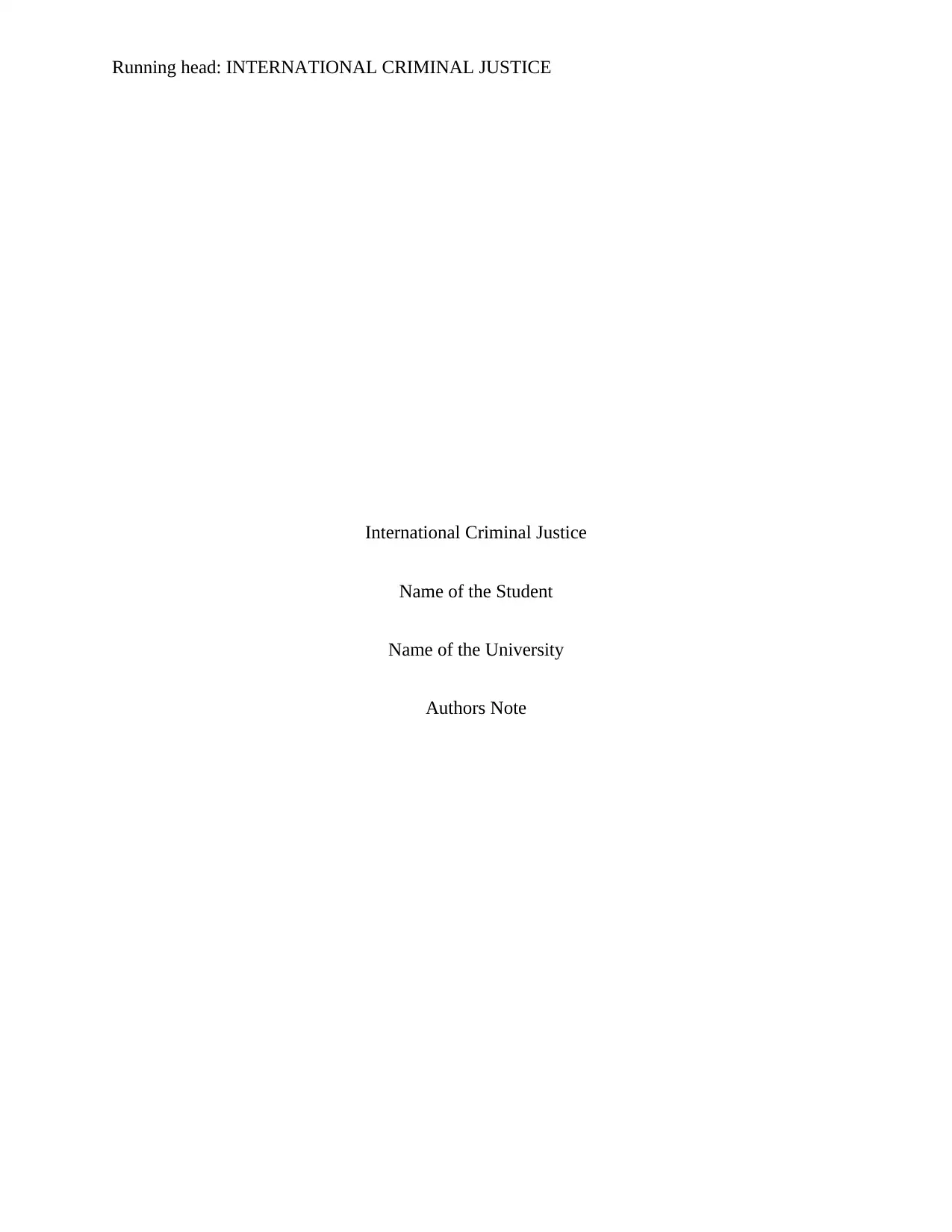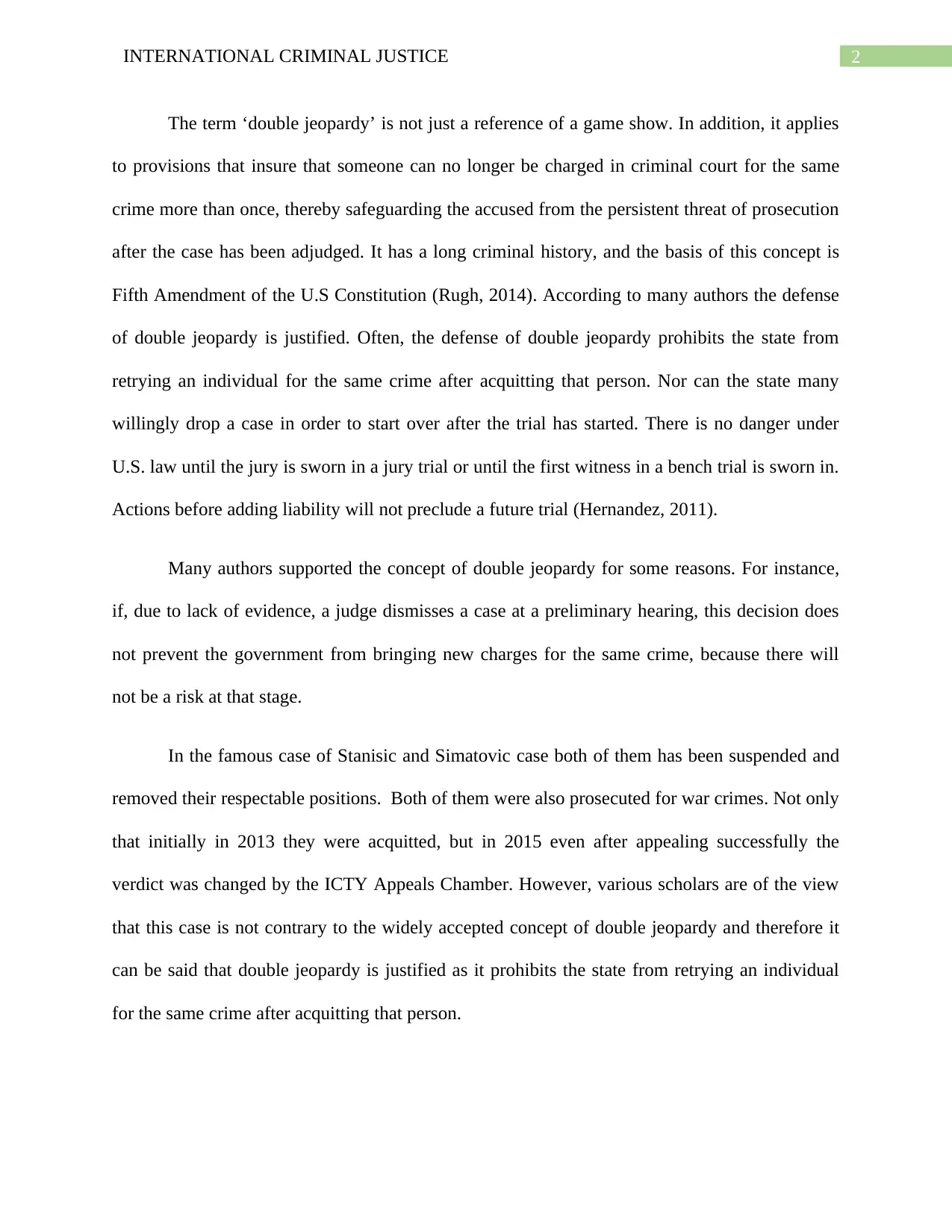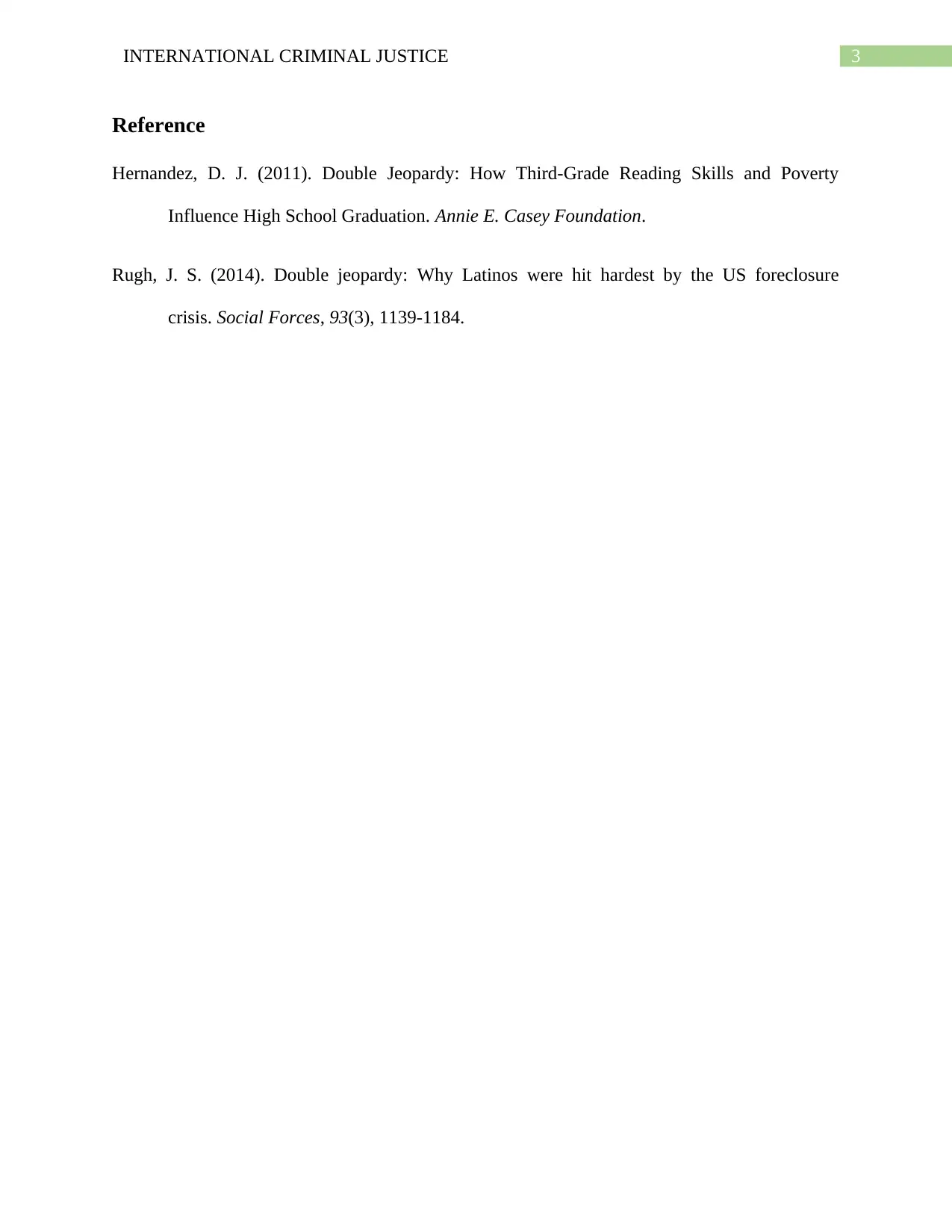International Criminal Justice Report - Double Jeopardy and Case Study
VerifiedAdded on 2022/08/24
|3
|443
|18
Report
AI Summary
This report delves into the concept of double jeopardy within the realm of international criminal justice. It begins by defining double jeopardy and its origins in the Fifth Amendment of the U.S. Constitution. The report then explores the implications of double jeopardy, particularly its role in preventing retrials after an acquittal or dismissal of charges. A key element of the report is an examination of the Stanisic and Simatovic case, highlighting how the principles of double jeopardy were applied and interpreted. The report analyzes the legal arguments and outcomes, providing a comprehensive understanding of double jeopardy's application in international criminal law. The report also examines the role of double jeopardy in legal proceedings, offering a comprehensive overview of its significance within the international legal framework. The report concludes with a discussion of the implications of double jeopardy in international criminal justice, emphasizing its role in safeguarding individuals' rights and ensuring fair legal processes.
1 out of 3










![[object Object]](/_next/static/media/star-bottom.7253800d.svg)